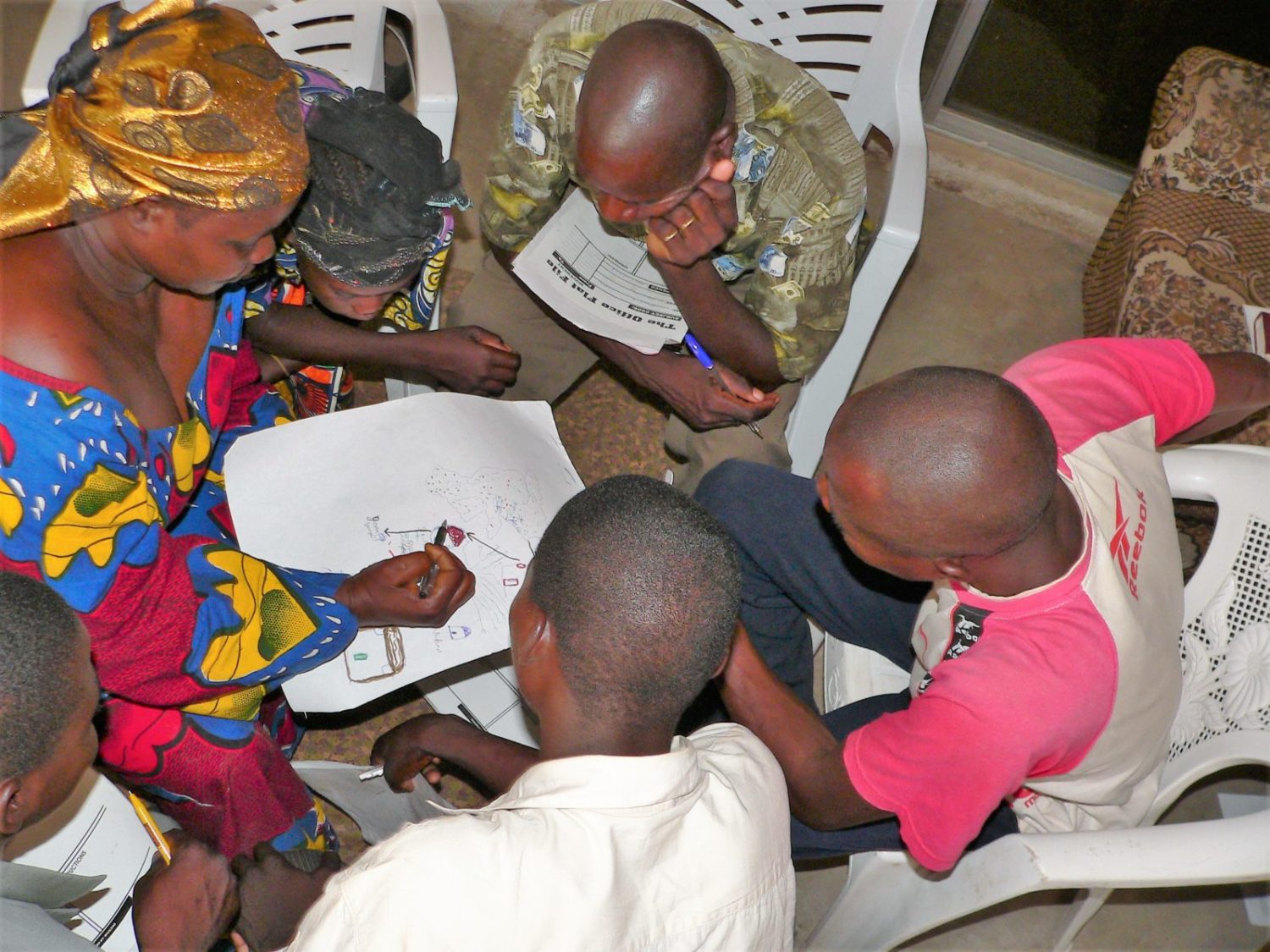“The harvesters are in the harvest,” the trainer said. “Hmm…I thought. What could that mean?” I was curious to know more. Would it be possible to start a Disciple Making Movement with brand new believers instead of older Christians?
A few days ago, one of my readers wrote this to me. “It’s hard for people to change,” they said. It is a common complaint of DMM practitioners. We, humans, are slow to change our paradigms.
It is not the new believers they were talking about. The older, more mature Christians they were training were not quick to shift their ideas about the nature of the church. My suggestion? Cast vision to all, but focus effort on new disciples. Give the most time to those who readily accept the Word of God as truth and aren’t steeped in church culture already.
Let’s Go Do This!
We were running training on the land we’d purchased to build an ashram (place of rest). It would become a home for widows whose families discarded them. It would also be a place we could train disciple makers. It was a bit of an experiment to buy land that way. In some ways, I look back on it as something I’m not sure I’d do again. That topic is for a different blog!
Nevertheless, the training would run there. We built a simple bamboo structure with a tarp overhead so we would be protected from the rain. A group of ten or twelve people were invited to this simple style of training. We would use stories, drama, and games to train them to follow Jesus and fish for men (and women).
A few of the trainees were more mature believers, those who had followed Jesus for many years. Most of them were brand new disciples of Christ. It was a mixture of young and old, male and female from different people groups and castes.
Two of the women couldn’t read or write. Could they still learn and attend our training? “Of course,” I’d said. They would turn out to be our star trainees! Why? They were faithful and became fruitful.
As we trained using these oral culture friendly methods, some of the more educated and more “mature” Christians struggled. “This isn’t how my church works! My pastor preaches and we listen. Why don’t they teach us? They keep asking questions instead of teaching. ” Eventually, they did adjust.
We taught the story from Luke 10. Acting it out, we created a drama about how Jesus told His disciples to go to villages, not taking extra sandals along, and not speaking to anyone on the way. How they were to find a Person of Peace and stay with them. We then asked, “What must we do to obey?”
Those not much exposed to the Bible said, “We must go and do the same! Let’s plan a trip to Maya’s * brother’s village and go look for a Person of Peace. If we find someone who is sick or has demons we will pray for them and share our testimonies!” The plan was made.
How easy it was to train them to obey the Word of God and immediately apply it! They were not conditioned to sit in a chair, gain head knowledge, and then forget about it. The DNA of multiplication and obedience was easy to put in place.
“Therefore everyone who hears these words of mine and puts them into practice is like a wise man who built his house on the rock.”
Matt 7:24 NIV.
3 Reasons to Start With Seekers or New Believers
1) The lost need to be saved more than the saved need to be trained.
I am passionate about seeing the church discipled in more appropriate ways. This, however, can not be our priority.
As long as there are still two billion people without access to the gospel, we must put our priority not on the saved, but on those who have yet to hear.
We must focus on those from people groups that have yet to be reached. If I had to choose between Nepalis Hindus in India and reaching Bengalis Muslims, I would choose Bengali Muslims. Why? They are a people group of almost 250 million with very little access to the gospel. It is not fair for us to give the majority of our efforts to those who already have access to the gospel message while millions wait to hear.
2) New believers are much easier to train as obedient disciple makers.
When you lead someone to Jesus and they begin to encounter His truth their lives start to change. They are amazed at who He is and His great love for them. It is easy to train them in biblical principles. They usually don’t question things in light of church traditions they have become deeply attached to. Though they may ask questions like, “Do we need a church building?” they will accept the answers you give as you point them to Scripture.
Those who are long-standing Christians become deeply attached to church culture and ways. It is much harder for them to shift. Its not impossible, especially if they strongly embrace the vision. Even more so if they are discontent with the lack of discipleship or impact on the lost around them. It is far easier, however, to train new disciples in natural, organic, and simple ways of spreading the Kingdom message.
3) You want to avoid sheep stealing accusations.
It is important to make a clear decision early in your DMM efforts. Will you incorporate what you are doing into a local church, or launch a completely separate movement?
The only place I have seen it work to launch a movement out of a local church is when the pastor himself (or herself) is at the head of that vision. You don’t want to become a threat to the local church you have been a part of.
Pull your pastor in and help them understand what you are doing. Help them see that it is not in contrast to what they are doing but a new additional effort focused only on the lost in your community. The local church can pray for and support the DMM effort. If the leadership understands well, they will joyfully release people to participate.
If you place the movement under the leadership of a local church, however, it is likely to fail. Institutions and movements don’t mix well.
Instead, let it be something parallel to the church and separate from it. Be careful not to pull the “best evangelists and teachers” in the church into your movement. Especially without clear communication with the pastor.
Instead, train the people God gives you; the seekers and new disciples. Train them to be disciple makers. Help them discover their spiritual gifts and quickly release them to exercise those gifts.
You will not be seen as a competitor but as a successful ministry the church has endorsed, supported and can champion.
Go Find Them!
The only problem with this approach is you have to go out and make disciples among the lost! That isn’t actually a problem though, is it? The harvest is ripe and people are ready to receive your message. As we go out and sow abundantly, share our story, God’s story, and other Bible stories, we will find those who are ready and want to hear more. As you disciple and train them, they will lead many others to faith.
Have you found any harvesters in the harvest yet?
Share about them in the comments below, or on the DMMs Frontier Missions Facebook page.




Comments
This is the absolute truth.
Dear beloved,
Thank you very much for the level of work you are doing.
I highly appreciate your ministry work and I am praying for us to meet together in the near future.
I look forward to hearing from you.
Sincerely,
Murphy T. Jackson
Liberia West Africa
00231777907059
Author
Great to hear from you Rev. Murphy! Have you subscribed to our blogs in your inbox? If not, just download any of the free resources on this site or sign up with any of the forms at the bottom of the blog posts and you will be all set! We would love to have you join in with this community.
Thanks for the great insight on the importance women empowered to disciplemaking.
My wife and I target training 25 women, by yesterday God has brought 16.
Our is John 15:8. Pray God to produce “faithful and fruitful” disciples.